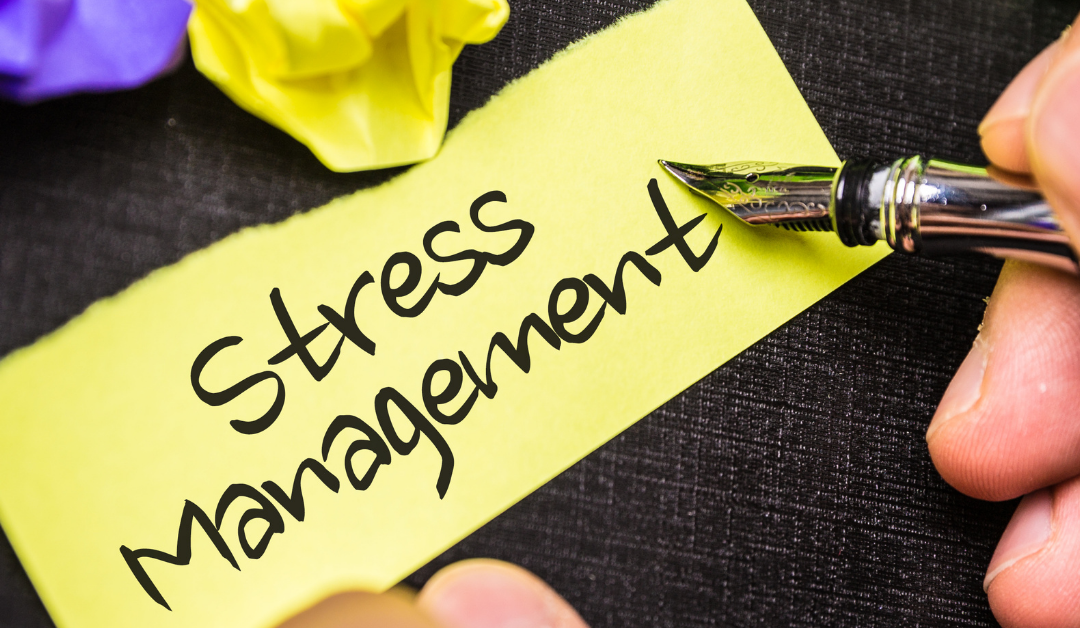I am sharing an updated version of my previous article on how to manage stress effectively, because it’s as relevant now, if not more so, than it was a couple of years ago.
And so, here in Ireland, practically all Covid19 restrictions have been lifted, quite quickly (for some, alarmingly) despite the escalating daily cases in various countries around the world. From 24th January, organisations can begin another phased return to the workplace for their employees. For some this is good news, for others this is not.
Life and work today are more stressful than ever and it is important to know that it’s not stress itself that kills us, it is our reaction to it. There are two types of stress:
- Positive stress – which drives both ambition and satisfaction and it is important to have this in our lives, as it is a great motivator and helps you to stay focused and energetic.
- Negative stress – more heightened now, and it arises when we feel we cannot cope with the demands of any situation and that we have lost control.
Symptoms and Causes of Stress
At a personal level the most common symptoms are high levels of anxiety; poor concentration, problems sleeping, poor eating and drinking habits and higher levels of agitation and behaving in an unreasonable way.
Workplace stress presents itself in poor productivity and motivation, high levels of employee disengagement, high staff turnover and absenteeism rates and greater levels and incidences of bullying.
The above are generally inter-related – and it is recommended you take some time to assess where you fit regarding personal stress and workplace stress. For those of you in managerial and leadership roles in the workplace, you might take some time to consider what the key causes of this stress are, and how you can manage them for yourself and your employees going forward.
Are they:
- The effects of Covid-19 in terms of how well your employees adapted to remote working or how difficult some of them found it;
- The willingness of your employees to return fulltime to the workplace or to establish a continuing hybrid model;
- Are your managers and leaders coping with the significant demands of leading hybrid teams and to even-changing business models to meet the needs of a very dynamic and challenging global and local trading environments;
- Your employees not having clear work goals and priorities;
- Communications overload and inconsistencies across all platforms and all units within your organisation;
- Customer experiences gone bad – or in some cases – very bad, resulting in increased complaints and much customer migration;
- The need for upskilling and training of your employees to enable them deal with the changes and also for your leaders and managers to enable them to truly value and acknowledge how your employees have supported the organisation;
- Others, which are unique to your own organisation or team.

Practical Ways to Manage Stress
Managing your own stress and finding ways to reduce the stressors in the workplace for your employees is important, and can be stressful in itself! Below are some practical solutions to help you manage stress at all levels.
- Accept Those Things Beyond Your Control
Some circumstances are simply beyond your control, and need to learn to cope with and accept them. Fortunately, you do have control over how you react to stressful situations. Stay calm, objectively look at the issues causing your stress, or the stress of your employees and focus on what you can control. Also, take a more considered approach to what is outside your control and communicate same.
- Step Back and Put the Problem in Perspective
Take a deep breath and ask yourself: In the bigger scheme of things, which issue is more important and will it still matter in one, or six months’ time? Put the problem into perspective and look towards finding a solution.
- List Some Solutions and Prepare a Plan
If there’s a specific problem you need to fix, make a list of all possible solutions and pick the best one for your situation. Realizing that you have options and preparing a concrete plan will have a direct effect on reducing your stress. Break the task into smaller parts so you can try to accomplish what you need to in an hour, a day and then next week so the problem becomes more manageable.
- Take a Break to Relax and Recharge
Daily stressors can creep up on you before you realize it, so treat yourself to at least one relaxing activity every day. Listening to music, meditating, writing in a journal, or enjoying a nice long walk are all great ways to relax and relieve stress. Taking time for yourself, even if it is only 15 minutes a day, is important for both preventing and managing stress.
- Try to Get Some Regular Exercise
Exercise is a proven de-stressor because it can relieve both the physical and emotional effects of stress. Consider fitness choices that suit your lifestyle, age and level of fitness and which also deliver specific stress-reducing effects.
- Improve the Quality of Your Sleep
Skimping on sleep interferes with your daytime productivity, creativity, problem-solving skills, and ability to focus. Make healthy changes to your nightly routine and make adjustments to your sleep environment. Aim for eight hours sleep a night—the amount of sleep most adults need to operate at their best. Turn off screens one hour before bedtime. The light emitted from TV, tablets, smartphones, and computers suppresses your body’s production of melatonin and can severely disrupt your sleep.
- Express Your Feelings
If something’s bothering you, don’t keep it to yourself. Talk to people you trust, like colleagues, peers, friends or family about what’s on your mind. Even if you’re not looking for specific advice, it usually feels good just to talk things through.
- Set Reasonable Expectations
Being busy is sometimes inevitable, but regularly taking on more than you can manage will have adverse effects. You are not obliged to accept every request made of you and you will need to learn to say ‘No!’ You need to set reasonable expectations of yourself and more importantly, of your employees.
- Resolve Issues Before They Become Crises
It’s human nature to avoid unpleasant topics and circumstances, but if you’re concerned about a developing situation, address it early to keep it from becoming more serious, harder to solve, and more stressful for you. Problems are always easier to handle before they develop into full-blown crises.
If you found this article beneficial, please check out my other related blogs and also my podcasts for more tips and techniques.
To receive regular updates and articles, join my community to receive my monthly newsletter ‘Empowering People’.


